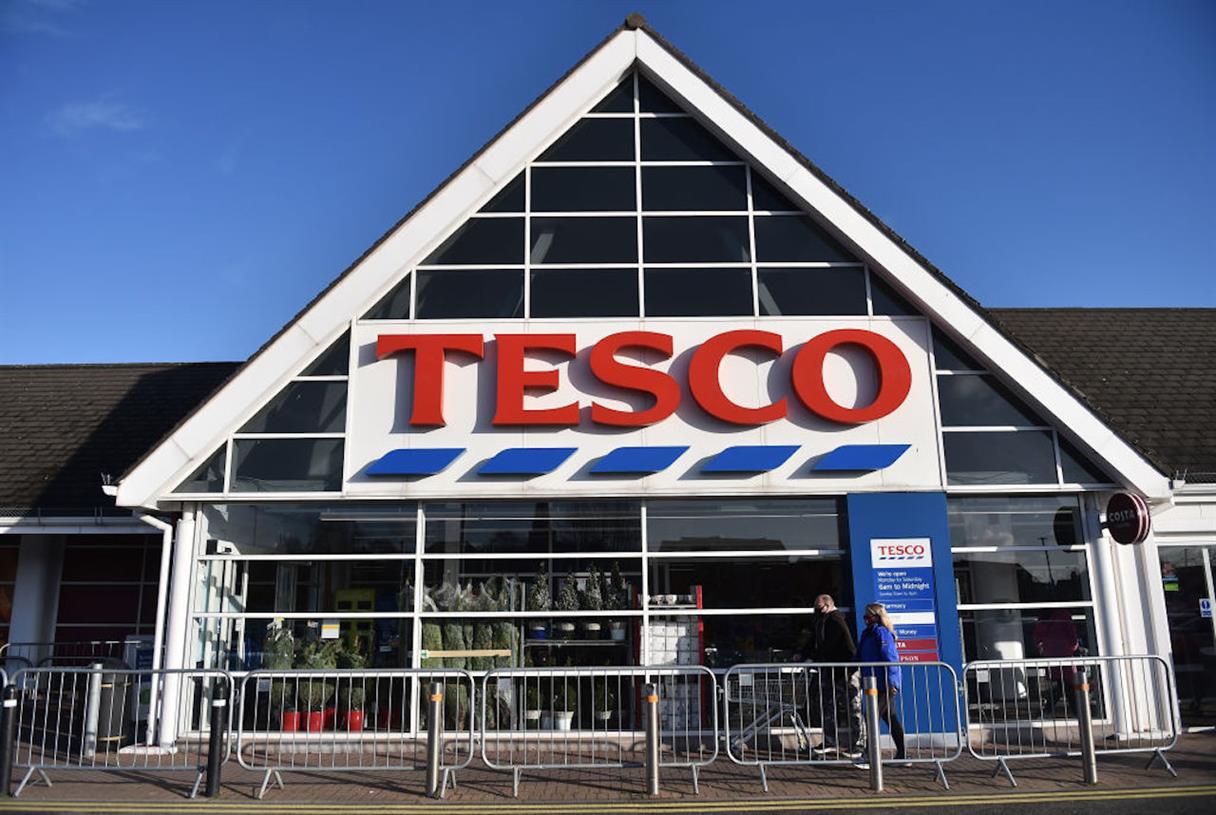
Ever wondered how a small market stall in London transformed into one of the world's largest retailers? Tesco's journey from its humble beginnings in 1919 to becoming a global retail giant is nothing short of remarkable. Founded by Jack Cohen, Tesco has grown from selling surplus groceries to operating in over 11 countries with more than 500,000 employees. This article dives into 50 intriguing facts about Tesco, highlighting its innovations, expansions, and commitment to sustainability. Whether it's the introduction of the Clubcard loyalty scheme or pioneering online shopping, Tesco has consistently set new standards in the retail industry. Let's explore the milestones that have shaped Tesco's incredible story.
The Beginnings of Tesco
Tesco's journey from a small market stall to a global retail giant is nothing short of remarkable. Let's explore the early days and significant milestones that shaped the company.
-
Founding: Tesco was founded in 1919 by Jack Cohen, who started selling surplus groceries from a stall in the East End of London. The name "Tesco" came from the initials of T.E.S. (Tesco Extra Special) and Cohen's surname.
-
Early Years: Initially, Tesco operated as a small market stall. It wasn't until 1929 that Cohen opened his first shop at Well Street in Hackney, London.
-
Expansion: The 1930s saw rapid growth for Tesco. By 1932, the company had opened its first supermarket in Burnt Oak, Edgware, marking a significant shift from traditional market stalls to modern supermarkets.
-
Post-War Growth: After World War II, Tesco expanded its operations across London and beyond, opening new stores in various locations.
-
First Supermarket: Tesco's first supermarket, which opened in 1929, was a groundbreaking innovation in retailing. It offered a wide range of products under one roof, setting a new standard for supermarkets.
Innovations and Milestones
Tesco has always been at the forefront of retail innovation. Here are some key milestones that highlight its innovative spirit.
-
Tesco's First Warehouse: In 1956, Tesco opened its first warehouse in Watford, significantly improving the company's logistics and supply chain management.
-
Introduction of Self-Service: In the 1950s, Tesco introduced self-service in its stores, allowing customers to browse and select products without the assistance of shopkeepers.
-
Expansion into the UK: By the 1960s, Tesco had expanded its operations across the UK, with stores in various regions, helping the company become a national brand.
-
First Tesco Superstore: In 1979, Tesco opened its first superstore in Cheshunt, Hertfordshire. This store was larger than traditional supermarkets and offered a wider range of products.
-
Introduction of Clubcard: In 1995, Tesco introduced the Clubcard loyalty scheme, revolutionizing customer loyalty programs in retailing. The Clubcard allowed customers to earn points for every purchase they made and redeem them for discounts and rewards.
Global Expansion
Tesco's ambition didn't stop at the UK borders. The company ventured into international markets, making its presence felt globally.
-
International Expansion: Tesco began its international expansion in the 1990s with the acquisition of the Irish retailer Quinnsworth, marking the beginning of Tesco's global presence.
-
Acquisition of Safeway: In 2003, Tesco acquired Safeway, a UK-based supermarket chain, further expanding its market share in the UK.
-
Entry into the US Market: Tesco entered the US market in 2007 with the acquisition of the US-based grocery chain, Fresh & Easy. However, the venture was ultimately unsuccessful and was sold in 2013.
-
Expansion into Asia: In the early 2000s, Tesco expanded into Asia with the acquisition of the Thai retailer, Lotus, tapping into the growing Asian market.
Digital Transformation
Embracing technology has been a key part of Tesco's strategy. The company has made significant strides in digital retailing.
-
Introduction of Online Shopping: In 2000, Tesco introduced online shopping, allowing customers to shop from the comfort of their homes, a significant step towards digital retailing.
-
Tesco Direct: In 2006, Tesco launched Tesco Direct, an online-only retailer specializing in non-food products. The platform allowed customers to browse and purchase non-food items online.
-
Tesco Bank: In 2008, Tesco launched Tesco Bank, offering a range of financial services including credit cards, loans, and insurance products.
Sustainability and Community Initiatives
Tesco is committed to sustainability and community development. Here are some initiatives that reflect this commitment.
-
Sustainability Initiatives: Tesco has set ambitious targets to reduce its carbon footprint and waste, leading the way in sustainability in the retail industry.
-
Community Programs: Tesco is actively involved in various community programs aimed at supporting local communities. The company's Community Champions program supports local charities and community projects.
-
Employee Benefits: Tesco offers its employees a range of benefits including competitive salaries, pension schemes, and employee discounts on store products.
-
Training Programs: Tesco provides extensive training programs for its employees to enhance their skills and career prospects. The company's training programs include apprenticeships and leadership development courses.
-
Corporate Social Responsibility: Tesco has a strong commitment to corporate social responsibility (CSR). The company engages in various CSR activities including supporting local charities and promoting sustainable practices.
Supply Chain and Waste Management
Efficient supply chain management and waste reduction are crucial for Tesco's operations. Here are some key initiatives.
-
Supply Chain Management: Tesco has a robust supply chain management system to ensure efficient and sustainable sourcing of products. The company works closely with suppliers to promote sustainable agriculture practices.
-
Food Waste Reduction: Tesco has implemented various initiatives to reduce food waste. The company's "Food Waste Reduction" program aims to minimize food waste from farms to stores.
-
Sustainable Packaging: Tesco has made significant strides in reducing packaging waste. The company uses eco-friendly packaging materials and encourages suppliers to adopt sustainable packaging practices.
Employee and Customer Engagement
Tesco values its employees and customers, focusing on engagement and satisfaction.
-
Employee Engagement: Tesco places a strong emphasis on employee engagement. The company conducts regular employee surveys to understand their concerns and improve working conditions.
-
Customer Service: Tesco is known for its excellent customer service. The company offers a range of services including click-and-collect, home delivery, and in-store services to enhance customer convenience.
-
Store Design: Tesco's store design is modern and customer-friendly. The company uses advanced technology to create an engaging shopping experience for customers.
-
Private Label Brands: Tesco offers a range of private label brands including Tesco Finest, Everyday Value, and Tesco Organic. These brands cater to different customer segments and offer high-quality products at competitive prices.
-
Partnerships and Collaborations: Tesco collaborates with various organizations to promote sustainability and community development. The company partners with NGOs and local authorities to support community projects.
Technological Advancements
Tesco has embraced technology to improve its operations and customer experience.
-
Digital Transformation: Tesco has undergone significant digital transformation in recent years. The company has invested heavily in e-commerce platforms, mobile apps, and data analytics to enhance customer experience.
-
Data Analytics: Tesco uses advanced data analytics to understand customer behavior and improve operational efficiency. The company's data analytics platform helps in predicting demand, optimizing supply chains, and personalizing marketing campaigns.
-
Artificial Intelligence: Tesco has started leveraging artificial intelligence (AI) to improve customer service and operational efficiency. AI-powered chatbots help customers with queries, while AI-driven algorithms optimize inventory management.
-
Robotics in Warehouses: Tesco has introduced robotics in its warehouses to streamline inventory management and reduce labor costs. Robots help in picking and packing orders, enhancing the overall efficiency of the supply chain.
Environmental Initiatives
Tesco is committed to reducing its environmental impact through various initiatives.
-
Electric Vehicles: Tesco has set ambitious targets to reduce its carbon footprint. The company is investing in electric vehicles for its delivery fleet, aiming to reduce emissions and promote sustainable transportation.
-
Renewable Energy: Tesco is committed to using renewable energy sources. The company has installed solar panels on its stores and warehouses, reducing reliance on fossil fuels and promoting sustainable energy practices.
-
Waste Reduction: Tesco has implemented various initiatives to reduce waste. The company recycles packaging materials, composts food waste, and encourages suppliers to adopt sustainable practices.
Community and Charity Efforts
Tesco actively supports community development and charitable causes.
-
Community Fund: Tesco operates a community fund that supports local charities and community projects. The fund provides grants to organizations working towards community development and social welfare.
-
Charity Partnerships: Tesco partners with various charities to support social causes. The company has long-standing partnerships with organizations like Macmillan Cancer Support and the British Red Cross.
-
Employee Volunteering: Tesco encourages employee volunteering. The company provides paid time off for employees to participate in volunteer activities, promoting corporate social responsibility and community engagement.
Inclusive Practices
Tesco promotes inclusivity and diversity within its workforce and customer base.
-
Sustainable Agriculture: Tesco promotes sustainable agriculture practices among its suppliers. The company works with farmers to adopt environmentally friendly farming methods, reducing the carbon footprint of its supply chain.
-
Fair Trade Products: Tesco offers a range of fair trade products, ensuring that farmers receive fair prices for their produce. This initiative supports small-scale farmers and promotes fair trade practices globally.
-
Disability Employment: Tesco is committed to employing people with disabilities. The company has implemented various initiatives to support disabled employees, including accessible store designs and inclusive recruitment practices.
-
LGBTQ+ Inclusion: Tesco promotes LGBTQ+ inclusion in the workplace. The company has a diversity and inclusion policy that supports LGBTQ+ employees, ensuring a welcoming and inclusive work environment.
-
Mental Health Support: Tesco provides mental health support to its employees. The company offers counseling services and promotes mental health awareness, encouraging employees to prioritize their mental well-being.
-
Diversity and Inclusion: Tesco values diversity and inclusion. The company has a diverse workforce and promotes equal opportunities for all employees, regardless of their background or ethnicity.
Customer-Centric Approach
Tesco places a strong emphasis on understanding and meeting customer needs.
-
Customer Feedback: Tesco actively seeks customer feedback to improve its services. The company uses customer feedback to enhance store layouts, improve product ranges, and personalize marketing campaigns.
-
Store Layout: Tesco's store layout is designed to enhance customer convenience. The company uses data analytics to optimize store layouts, ensuring that products are easily accessible and well-organized.
-
Product Range: Tesco offers a wide range of products including fresh produce, meat, dairy products, and non-food items. The company's product range caters to different customer segments, ensuring that there is something for everyone.
-
Global Presence: Today, Tesco operates in over 11 countries, employing over 500,000 people worldwide. The company's global presence reflects its commitment to expanding its market share and promoting its brand globally.
Tesco's Remarkable Journey
Tesco's transformation from a small market stall to a global retail powerhouse is nothing short of impressive. Founded by Jack Cohen in 1919, Tesco has continually evolved, embracing innovations like self-service, online shopping, and the Clubcard loyalty scheme. The company's commitment to sustainability, community support, and employee welfare sets it apart in the retail industry. With initiatives like reducing food waste, promoting fair trade, and investing in renewable energy, Tesco is leading the way in responsible retailing. Its global presence, extensive product range, and focus on customer satisfaction have cemented its status as a retail giant. As Tesco continues to innovate and expand, it remains a significant player in shaping the future of retail. From its early days in London's East End to its current global reach, Tesco's journey is a testament to its resilience, adaptability, and dedication to excellence.
Was this page helpful?
Our commitment to delivering trustworthy and engaging content is at the heart of what we do. Each fact on our site is contributed by real users like you, bringing a wealth of diverse insights and information. To ensure the highest standards of accuracy and reliability, our dedicated editors meticulously review each submission. This process guarantees that the facts we share are not only fascinating but also credible. Trust in our commitment to quality and authenticity as you explore and learn with us.


